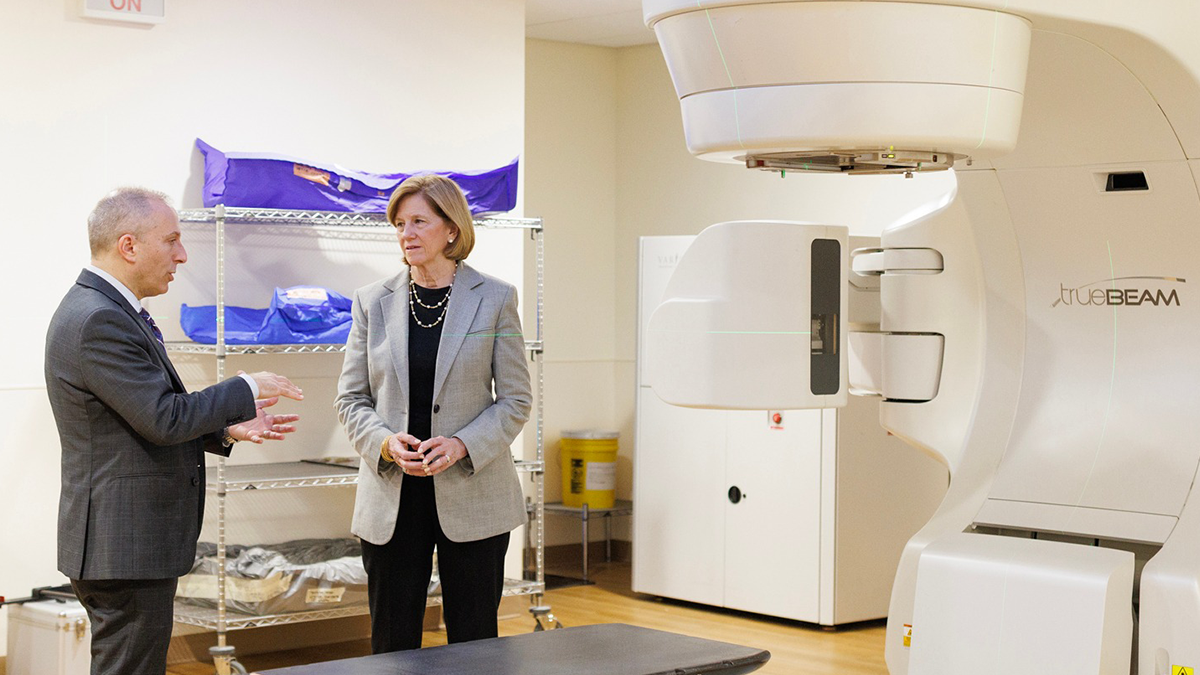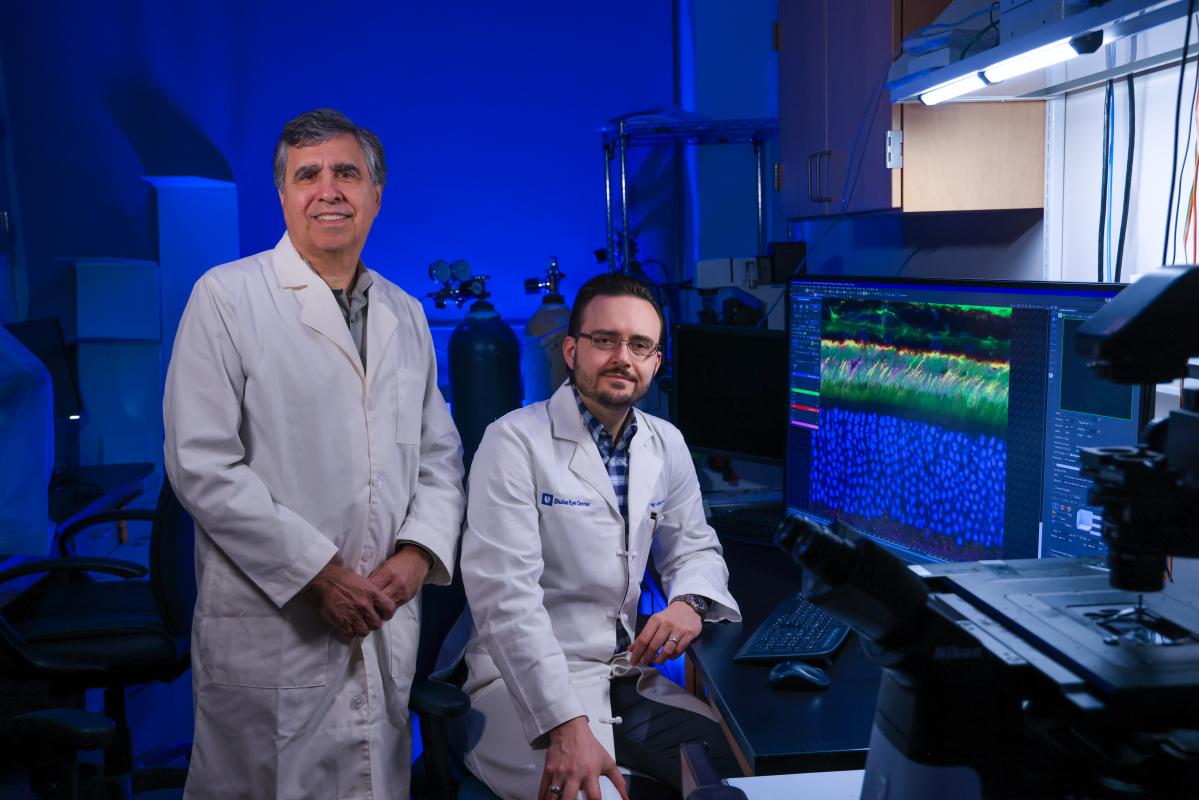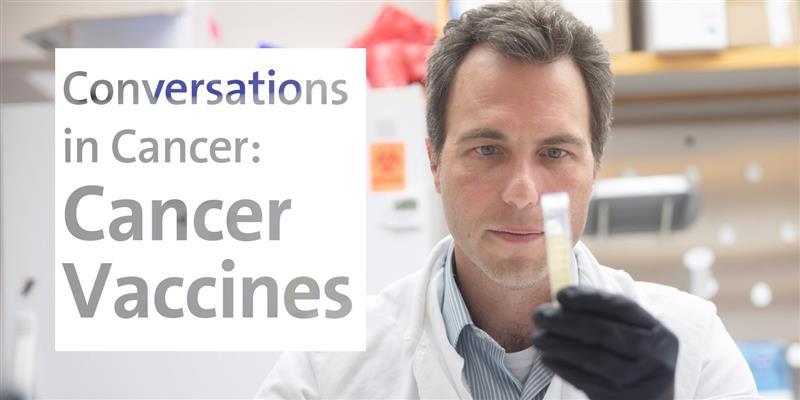Leading at the Intersection of Technology and Care: A Conversation with Dr. Erik Sulman
In this conversation, Dr. Sulman reflects on what drew him to Duke, outlines his goals for strengthening Radiation Oncology’s clinical, research, and educational missions, and shares how innovation—from precision therapies to new technologies—is shaping the field.
New leaders, shared vision: Building community and opportunity across Duke
They may lead different employee resource groups (ERGs), but Magaly Guerrero and Antonio Jones share a similar vision for what belonging at Duke can look like. It’s a vision that will guide them as the newly named leaders of Duke University School of Medicine’s two ERGs.
Eye disease mystery solved: How Best disease patients keep seeing clearly
Duke Eye Center discovery may explain how vision can stay surprisingly strong even when the eye’s structure is disrupted.
Higher firearm age limits for young adults with juvenile records linked to lower gun violence risk
A new study offers the first comparative, state level evidence that raising the minimum age of firearm access for young adults with juvenile justice histories may reduce gun-involved violent crime. Researchers from Duke University, Yale University, the University of Virginia, and the University of Delaware collaborated on the study, which was published in the Journal of Interpersonal Violence.
Can vaccines help us treat cancer?
In the first episode of the new “Conversations in Cancer” video series from the Duke Cancer Institute, Duke Health medical oncologist Diane Reidy-Lagunes, MD, and DCI cancer vaccine researcher Zachary Hartman, PhD, discuss cancer vaccines: what they are, how they work, and what’s on the horizon.
Faces of Research
The Faces of Research series captures the stories of Duke Health patients who battled complex health challenges. These North Carolinians are now able to live life to the fullest thanks to the combined work of researchers and clinicians pushing the boundaries of what is possible in modern health care.
Blue Chair Conversations featuring Coach Scheyer and Dr. Turek
Coach Jon Scheyer and Dr. Joseph Turek are made for teamwork. Head basketball coach at Duke University Jon Scheyer, and Chief of Pediatric Cardiac Surgery at Duke Health Dr.
Duke to lead statewide attempt to break world record for most CPR training in one day
On February 25, 2026, North Carolinians have a shot at making history. Duke School of Medicine is leading a statewide effort to break the world record for the most people trained in hands-only CPR in a single day. The event is taking place in 30 counties in NC as part of the Randomized Cluster Evaluation of Cardiac Arrest Systems (RACE CARS) trial, led by Duke cardiologist and researcher Chris Granger, MD. Participants will learn how to provide CPR from volunteer trainers from Duke and volunteers across the state at select locations. Community volunteers are aiming to train 30,000 people in participating counties that day, and if they achieve it, that’ll be a new world record.









